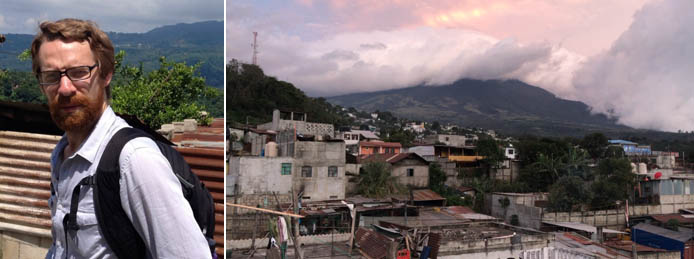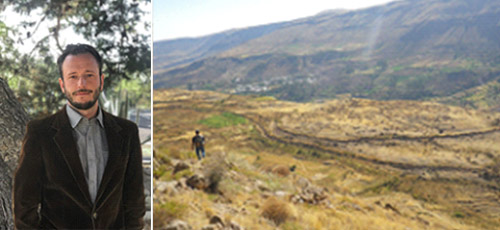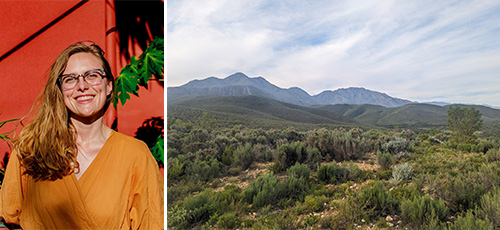Postdoctoral Researchers
Joe Hackman
 |
|
Postdoctoral Research Associate Ph.D. Anthropology, 2019 - Arizona State University Evolutionary perspectives on global health disparities and understanding social and demographic consequences of economic development. |
Joe is an evolutionary anthropologist and population health scientist interested in how insights from human’s evolutionary history can help us understand global health disparities. His work focuses on understanding disparities in human growth and reproduction, particularly in the context of economic development and global market integration. Based on fieldwork in Guatemala, he studies recent changes in reproductive and parenting decision-making among indigenous populations in Latin America. Additionally, he utilizes existing demographic and health monitoring surveys to map the global range of variation in human growth and reproduction and the extent to which these are influenced by social and economic factors. He is currently involved in a project documenting the longitudinal impact of market integration and subsistence diversification on growth and reproduction in Maya village in the Yucatan, Mexico. This NSF Funded project draws on over 30 years’ worth of economic and demographic data to trace the development of reproductive and wealth inequality over the course of increasing access to global markets and wage-labor opportunities.
Weston McCool
 |
|
Postdoctoral Research Associate Ph.D. Anthropology, 2020 - University of California, Santa Barbara Archaeology, Paleoenvironmental and spatial modeling, isotope chemistry, osteology, behavioral ecology, conflict and cooperation, subsitence risk management |
Weston’s research focuses on the strategies humans use to adapt to challenging circumstances. Whether resource-poor environments, climate change, population pressure, or conflict, people establish innovative, though not always successful, strategies for coping with hard times. Weston’s role as an archaeologist is to use our material remains to infer past behavior within a perspective of human ecology and evolution. His current research focuses on the socioenvironmental conditions that promote violence over cooperation, and the ways in which people adjust to living with conflict related risk. Weston also conducts research on subsistence risk management, patterns of regional settlement and abandonment, dietary reconstructions, and paleoecology. His research combines the use of archaeological and osteological data with environmental records and spatial models. He conducts fieldwork in the Nasca highlands of Peru and the North American Colorado Plateau.
Weston is currently PI on an NSF-funded project in the four-corners region of North America that investigates how climate change, population pressure, inequality, and environmental productivity interact to influence levels of conflict. This project is focused on developing scientific tools that can be used to establish what conditions consistently lead to conflict, with the ultimate goal of establishing models that can aid in conflict mitigation in the present and future.
Interests: Archaeology, paleoenvironmental and spatial modeling, isotope chemistry, osteology, behavioral ecology, conflict and cooperation, subsistence risk management
Alex Norwood
 |
|
Postdoctoral Research Associate Ph.D. Anthropology, 2024 - University of Michigan paleoecology, paleoanthropology, human evolution, climate change, stable isotopes, fauna, science communication, museum studies |
Alex is a paleoecologist whose research is broadly concerned with how climate change drove human evolution. She uses a variety of paleoenvironmental proxies to understand the relationship between climate and terrestrial ecosystems in the past, with a strong emphasis on biogeochemistry, and the stable isotope analysis of faunal teeth from paleontological and archaeological sites. Alex’s work is concerned with both modern ecology and isotope systems and using isotope data to provide insight into the environmental contexts of important inflection points in the paleoanthropological record, like the emergence of new hominin taxa or technological suites.
Alex is currently an NSF EAR Postdoctoral Fellow, working on a project investigating drivers of megafaunal extinction in the late Quaternary in southern Africa. This project has two focuses: first, on generating novel approaches to the analysis of enamel isotope data, so that rainfall seasonality data (the timing and amount of rainfall during the year) can be recovered from the fossil record. And second, on reconstructing paleo-seasonality across southern Africa to understand how changing seasonality may have altered ecosystems in ways that have not been detected in other paleoenvironmental proxies and contributed to extinction in the late Quaternary.
Interests: paleoecology, paleoanthropology, human evolution, climate change, stable isotopes, fauna, science communication, museum studies
